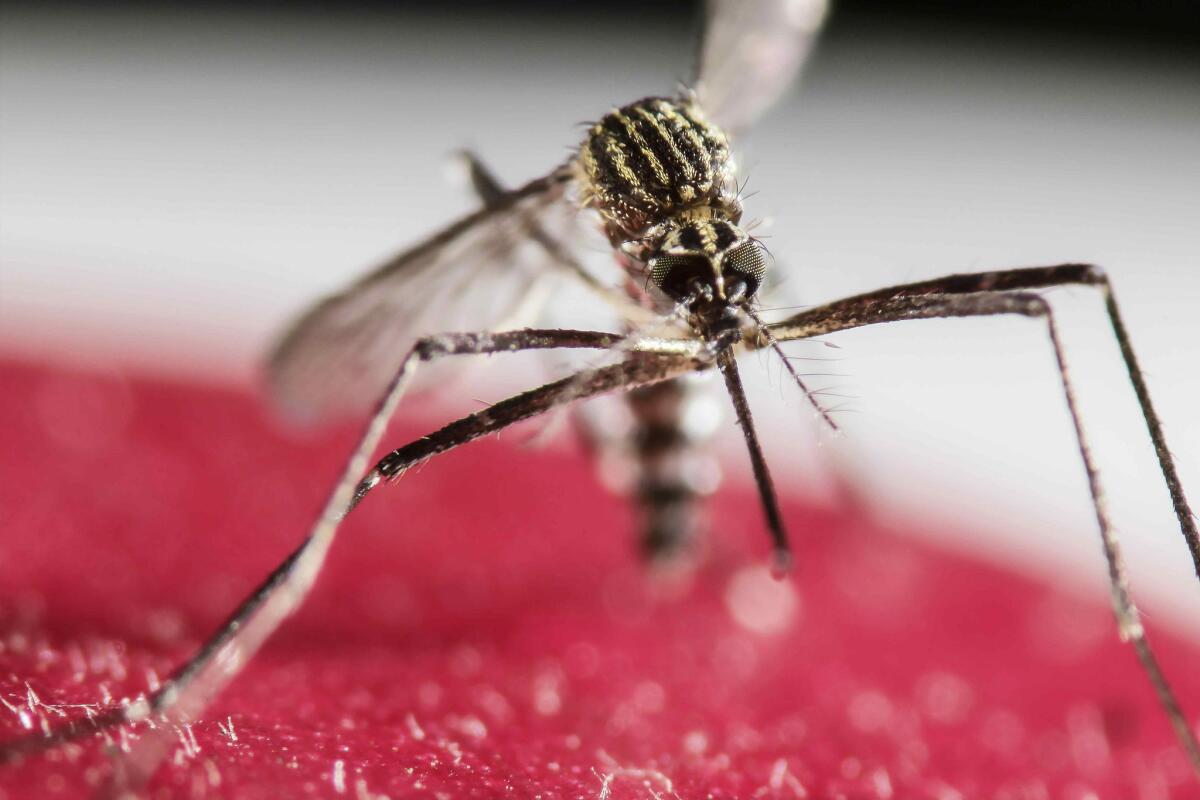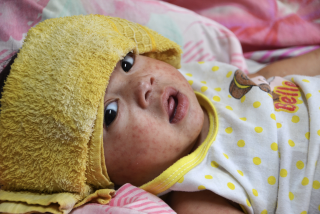Florida finds Zika in trapped mosquitoes, confirming the virus is being spread by the insects

Authorities in Florida have found the Zika virus in mosquitoes in Miami Beach, confirming what they had suspected: The virus that can cause devastating birth defects is being spread by the insects.
The three mosquitoes that tested positive for Zika were trapped in a 1.5-square-mile area that had already been identified as a source of infection, the Florida Department of Agriculture and Consumer Services said Thursday.
“This find is disappointing, but not surprising,” Commissioner of Agriculture Adam H. Putnam said in a statement. “Florida is among the best in the nation when it comes to mosquito surveillance and control, and this detection enables us to continue to effectively target our resources.”
Federal disease-control officials concluded in July that Zika-carrying mosquitoes were spreading the virus in small areas of Miami after cases emerged that were not linked to foreign travel or sex with an infected person. But this is the first time that Zika has been found in the insects in the continental United States, which authorities likened to searching for a needle in a haystack.
The Florida agriculture department has tested more than 2,470 mosquito samples since May, and these were the first to test positive for Zika, officials said. All 95 samples submitted by Miami-Dade County since then were negative.
Health authorities have identified 49 cases of locally acquired Zika in Miami, most of which were traced back to parts of the Wynwood and Miami Beach areas. More than 570 cases in Florida have been linked to travel to other countries where the virus is spreading.
NEWSLETTER: Get the day’s top headlines from Times Editor Davan Maharaj »
The Miami-Dade County mayor, Carlos A. Gimenez, said local teams would continue an aggressive effort to control the mosquito population, including spraying insecticide in the affected areas and going door-to-door to identify and eliminate potential breeding sites.
“As it has been from the beginning, our goal is to eliminate the cycle of transmission by eliminating the mosquitoes,” Gimenez said.
There is no vaccine or cure for Zika.
The virus is not considered dangerous for most people, but can cause severe neurological defects in infants born to women infected during pregnancy. In rare cases, Zika has also been linked to Guillain-Barre syndrome, a potentially fatal immune system disorder that can cause temporary paralysis.
The federal Centers for Disease Control and Prevention has advised pregnant women to avoid the two areas in Miami where active transmission of Zika has been confirmed. Pregnant women who live, work or must visit the areas have been urged to protect themselves from mosquito bites by wearing long clothing and insect repellent, and by limiting time spent outdoors.
Scientists with the Florida agriculture department tested the positive mosquito samples at the Bronson Animal Disease Diagnostic Laboratory in Kissimmee. The samples were then sent to the CDC and Florida Gulf Coast University for confirmation.
ALSO:
In the ‘land of the free,’ are you free to sit out the national anthem?
‘This is life-threatening,’ governor warns as Hermine bears down on Florida Gulf Coast
Overgrown and forgotten, Tacoma cemetery holds a mystery: thousands of unmarked graves
UPDATES:
3:05 p.m.: This article was updated with staff reporting.
This article was originally published at 11:30 a.m.
More to Read
Start your day right
Sign up for Essential California for news, features and recommendations from the L.A. Times and beyond in your inbox six days a week.
You may occasionally receive promotional content from the Los Angeles Times.






